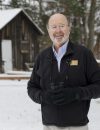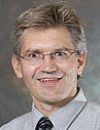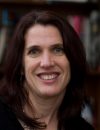UW In The News
-
UW–Madison meal service offers suhoor for fasting students
UW–Madison is one of a growing number of universities across the country offering special meal plans for Muslim students during Ramadan. University Housing’s Ramadan Meal Service offers Muslim students a breakfast bag of halal food options for suhoor that is delivered to a nearby dining hall for evening pick-up.
-
Bacteria wars are raging in soil, and it’s keeping ecosystems healthy
“The finding that growth and carbon uptake are higher in bacteria that may have predatory lifestyles than in other bacteria is interesting, and supports the idea that bacterial predators can play meaningful roles in the soil food web,” wrote Thea Whitman, a soil ecologist at the University of Wisconsin-Madison, who was not involved in the study, in an email to Popular Science
-
This Scientist Returned To Sierra Leone To Study Ebola And Educate Next Generation
Alhaji N’Jai left Sierra Leone to pursue a scholarship in the US, which also served to get him out of the country during its civil war, but in recent years he has been able to return, both to study Ebola and help educate the next generation of STEM talent there.
-
FDA wants ‘significant’ amount of extra data on AstraZeneca’s Covid vaccine
Dr. William Hartman, principal investigator for the AstraZeneca vaccine trial site at the University of Wisconsin, Madison, said the delays are frustrating to clinical trial teams in the U.S. who “put in a tremendous effort” to study the vaccine.
But he supports FDA’s extra efforts. “They are looking under every stone, making sure that this is the safest product that can be put out there,” Hartman said.
-
How much sleep is enough? Study says focus on consistency, too.
The specific mechanism by which sleep timing affects overall mental health is still not completely understood, said Fang, the researcher who studied the medical residents. But the link between inconsistent sleep schedules and mental health outcomes may have to do with sleep quality, said David T. Plante, a psychiatrist and medical director of the Wisconsin Institute for Sleep and Consciousness at the University of Wisconsin-Madison. “If you change the timing of when you’re sleeping, you can really affect the quality of your sleep,” he explained. Over time, “it can have a downstream effect on your overall well-being and mental health as well.”
-
Summer Camp F.A.Q.: C.D.C. Guidelines and Answers From Experts
The experience taught camps “what you don’t want to do,” said Dr. Dipesh Navsaria, a pediatrician at the University of Wisconsin-Madison School of Medicine and Public Health who has been working to develop Covid-19 protocols for camps, including one in Wisconsin.
-
Invasive garlic mustard hurts native species—but its harmfulness wanes over time
But it may not be necessary to eradicate it to save forests. “In many ways its presence is more of a symptom of a disease rather than the cause,” says Richard Lankau, a researcher at University of Wisconsin. “Things like disturbance, overabundance of white-tailed deer, exotic earthworms—those things often seem to set the stage for bad garlic mustard invasions.”
-
Another boon from vaccinating millions of Americans: Jobs
“A massive vaccine rollout certainly creates new jobs — from clinic clerks and managers to nurses, medical assistants/techs and pharmacists,” said Dr. Christine B. Whelan, a clinical professor in the School of Human Ecology at the University of Wisconsin. “There are the truck drivers to transport the vaccines and the computer folks to create the sign-up portals.”
-
‘I’m fine with being called an activist’: Angie Thomas on her The Hate U Give prequel
What about publishing? In the US there’s been a boom in books featuring diverse characters. A study by the Cooperative Children’s Book Center at the University of Wisconsin-Madison found that more than 12% of children’s books starred African American characters in 2019, compared with 5% in 2012 (in the UK, 5% of children’s books have black, Asian or minority ethnic protagonists, up from 1% in 2017).
-
UW-Madison breaks ground on Divine Nine plaza to honor legacy of Black fraternities and sororities
In one of the first campus events since the beginning of the Coronavirus pandemic, UW-Madison took a step towards creating visible spaces for Black involvement on campus.
-
Thomas Brock, Whose Discovery Paved the Way for PCR Tests, Dies at 94
After retiring from the University of Wisconsin, Dr. Brock focused on ecological strategies to restore oak savanna, prairie and marshland on 140 acres that he and his wife had purchased in Black Earth, Wis., about 35 minutes from Madison.
-
Opinion | After Covid, Your Health May Depend on Living With Germs
This idea is controversial. “I’ve always felt that people don’t do enough to prevent cold and flu, and so in a sense many of these changes have been healthy,” says Jo Handelsman, an infectious-disease researcher and professor at the University of Wisconsin-Madison. She says it’s unclear whether shaking hands or spending time in crowded places meaningfully contributes to microbiome health, and so avoiding such risky practices may be all upside — a view that many infectious disease experts share.
-
After Derek Chauvin verdict, will police prosecutions change?
“It’s one case out of thousands of cases involving police use of force, so we shouldn’t read too much into it,” said Keith A. Findley, a law professor at the University of Wisconsin. “But it’s nonetheless very important, because it is one in which, with the whole world watching, the justice system stepped up and acted to hold the police officer responsible for an unlawful use of deadly force.
-
5 Things You Should Do First Thing In The Morning To Be Happier All Day
But research suggests that even if you don’t actually meet up with someone or send them an email or text, it can be enough to simply send good thoughts their way. “You can start with a simple appreciation practice,” Cortland Dahl, a research scientist at the University of Wisconsin-Madison’s Center for Healthy Minds, previously told HuffPost. Just bring a friend or loved one into your mind, then consciously focusing on the things you really cherish about them.
-
Biden progress on school reopening uneven
Advocates for reopening have pointed to data showing significant learning losses during the pandemic, particularly for students of color. But parents of color are far more concerned with loss of life, said John B. Diamond, an education professor at the University of Wisconsin at Madison.
-
Thomas Brock, Whose Discovery Paved the Way for PCR Tests, Dies at 94
Brock was a microbiologist at UW–Madison. In 1966, he found heat-resistant bacteria in a hot spring at Yellowstone National Park. That led to the development of the chemical process behind the test for Covid-19.
-
The Years We’ve Lost to Covid
There’s good reason to use it, Dr. Murray and others said. “We’ve had clear difficulties figuring out what works best, when, and in what contexts,” said Adeline Lo, a political scientist at the University of Wisconsin who was an author on the international study. “This at least puts another fact on the table that may be helpful.”
-
Fact-checking Nancy Mace’s claim that Washington, DC wouldn’t ‘qualify’ as a single congressional district
“Mace’s claim is a complete non sequitur. A state will always have at least one congressional seat no matter how small it is,” said Kenneth Mayer, a University of Wisconsin-Madison political science professor and another redistricting expert.
-
After a Century of Dispossession, Black Farmers Are Fighting to Get Back to the Land
And yet, despite violent backlash from Southern planters, Black growers managed to gain a toehold. The key was collective action, University of Wisconsin sociologist Monica White explains in her book Freedom Farmers: Agricultural Resistance and the Black Freedom Movement, 1880–2010. Launched in 1886 to organize landless Black farmers and to pool money to buy land and tools, the Colored Farmers’ National Alliance and Cooperative Union boasted 1.2 million members at its peak. At the Tuskegee Institute, the Alabama land-grant college founded by Booker T. Washington and other formerly enslaved people, agricultural scientist George Washington Carver pushed crop diversification, composting, and other proto-organic methods to help sharecroppers “make enough profit to purchase their land, feed their families, and achieve economic autonomy,” White writes. Carver toured Alabama in an “agricultural wagon,” delivering lectures and demonstrations of his techniques.
-
After Derek Chauvin verdict, will police prosecutions change?
“It’s one case out of thousands of cases involving police use of force, so we shouldn’t read too much into it,” said Keith A. Findley, a law professor at the University of Wisconsin. “But it’s nonetheless very important, because it is one in which, with the whole world watching, the justice system stepped up and acted to hold the police officer responsible for an unlawful use of deadly force.
-
COVID vaccines and kids: five questions as trials begin
Children rarely develop severe forms of COVID-19, and deaths from the disease are rarer still. On rare occasions — one estimate1 puts it at around one case in 1,000, although it could be even lower — kids who’ve experienced even mild infections can later develop a sometimes deadly condition called multi-system inflammatory syndrome in children (MIS-C). “I’m tired of seeing sick kids. I want to see them protected,” says James Conway, a paediatric infectious-disease specialist and vaccine researcher at the University of Wisconsin–Madison.
-
Herd immunity in US likely impossible, but vaccines can control COVID
More people may yet decide to get vaccinated as it becomes clear how much protection it provides, said Ajay Sethi, a professor of population health studies at the University of Wisconsin-Madison.
“I try to be an optimist,” he said. “I don’t want to write off rural areas saying they’re forever going to be the communities refusing vaccination. Over time, that will change.”
-
Opinion | What American Workers Really Want Instead of a Union at Amazon
Research has borne this out. In a landmark 1994 survey, Harvard professor Richard Freeman and University of Wisconsin professor Joel Rogers asked more than 2,400 nonmanagement workers whether they would prefer representation by an organization that “management cooperated with in discussing issues, but had no power to make decisions” or by one “that had more power, but management opposed.” Workers preferred cooperation to an adversarial stance by 63 percent to 22 percent, a result that held even among active union members.
-
What Does President Biden Need To Understand About Mexico?
To discuss Mexico’s President Lopez Obrador and the current state of US-Mexico relations, I reached out to Patrick Iber, a professor of Latin American history at the University of Wisconsin-Madison.
-
COVID-19 Antibody Drugs Are Tough To Deploy In Surges : Shots
The challenge now is logistics. Dr. Peter Newcomer, chief clinical officer for University of Wisconsin Health, said the treatment never really took off at his facility. And now, with a low load of cases to begin with, his hospital is only treating a patient or two a day. Wisconsin hasn’t seen the same surge as Michigan.
-
Best vaccine: How Pfizer became the “status” choice.
As the vaccines have rolled out, many experts have strenuously rejected the idea that there’s any “best” vaccine. “The best vaccine is the one that goes in your arm,” said Mary Hayney, a professor at the University of Wisconsin–Madison School of Pharmacy who researches vaccination. “I truly believe that there is not a big difference among the vaccines, or a discernable difference. Whatever one is offered to you, take it.” (Again, Hayney spoke to Slate before the latest J&J news.)
-
Biden administration invests $1.7 billion to fight COVID-19 variants
Another hurdle is getting local, state and federal labs all working together. “There are lots of cats that need to be herded,” said University of Wisconsin virologist Thomas Friedrich.
-
Plant a Love of Nature in Your Kids
“Miss Carson” was Rachel Carson, who would later make history with her book “Silent Spring,” about the dangers of the pesticide DDT. Stanley Temple would become Dr. Temple, a well-known bird conservationist and a professor of wildlife ecology at the University of Wisconsin-Madison.
-
I’ve always wondered: Should there even be billionaires?
But visualizing or trying to understand “how many” a billion dollars is doesn’t really help us understand any better how much money a billionaire has. Jordan Ellenberg, professor of mathematics at the University of Wisconsin-Madison and author of “Shape: The Hidden Geometry of Information, Biology, Strategy, Democracy, and Everything Else,” said thinking about “how much” a billion dollars is is more useful. Basically, how rich is a billionaire?
-
Kim Potter Is Charged With Manslaughter in Daunte Wright Killing
Steven Wright, an associate professor at the University of Wisconsin Law School, said second-degree manslaughter is a charge for offenses that are not planned — one example in the statute specifically addresses hunting accidents, not uncommon in Minnesota.
- Newer stories
- Page 43 of 140
- Older stories
Featured Experts
Kathleen Glass: Food safety
Food is an integral part of Thanksgiving. And who doesn't love leftovers? But after how long should you leave those… More
Cecelia Klingele: Body-worn cameras by police
Madison Police Chief Shon Barnes is requesting that the city fund widespread use of body cameras for officers in the… More
Stanley Temple: Fall phenology
The days have finally started getting cooler and we all know winter awaits. Stanley Temple, an expert on birds, wildlife, endangered… More
Jonathan Temte: The seasonal flu shot
Family medicine professor Jonathan Temte is available to discuss this year's updated seasonal flu shot and flu prevention and control. More
Noelle LoConte: Pancreatic Cancer Awareness Month
Pancreatic cancer is one of the most difficult cancers to prevent, diagnose or treat. Earlier this month, music legend Quincy… More
Alvin Thomas: Movember and Men's Health Month
You might see more facial hair this month as Movember goes into full effect, drawing awareness toward men's health. Alvin… More
Dominique Brossard: Vaccine hesitancy
With a new administration poised to take power in January, a change in policy regarding vaccines may also be on the way.… More







